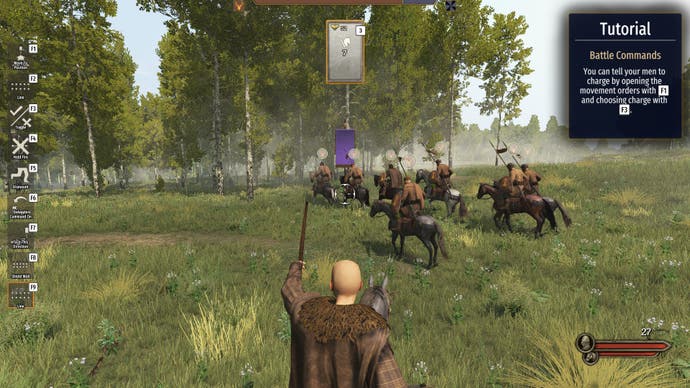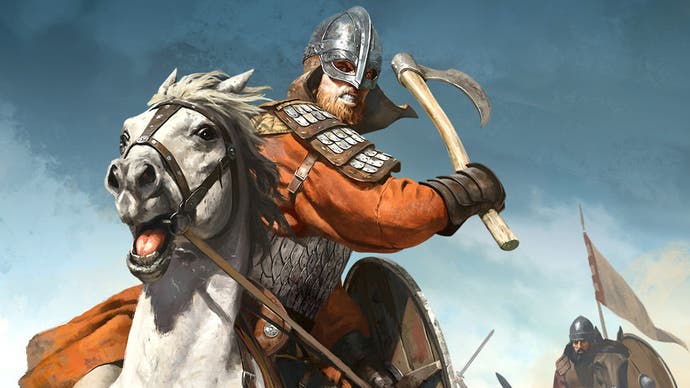Mount & Blade 2: Bannerlord is stubborn and unruly unless you have time to break it in
A game of conquerors.
There was a run of things that happened to me in Mount & Blade 2: Bannerlord that perfectly summed up my early-game experience with it.
It began with me finding a way to cheese the game. I'd discovered I could take down groups of enemies on my own, up to a dozen of them, simply by riding out of their reach on my horse and slowing down just enough to carefully aim my bow and headshot them. One by one, they'd fall. If it weren't for the arrow limit - around 27 depending on the quiver - I'd have taken on entire armies. And it was beginning to be very profitable for me. I was finally threatening to make the dent in the world I'd been struggling to make.
But then Mount & Blade 2: Bannerlord - the latest in TaleWorlds' series of strategy action RPGs that's just left early access - suddenly decided not to let me do it any more. It decided I needed troops to command, because that's what the game is about: commanding armies in battle - think Maximus in opening scene Gladiator, where he's riding with the troops through the forest. You can, in a Total War-lite way, shout orders to your troops, using the F-keys and a time-slow mode to command them (it's fiddly). So, I bought troops.
Then, though, the game decided I didn't have enough health to fight the bandits in the way I had been, despite this never having been a problem before, so I had to send my troops to fight for me - and they died, leaving me no option but to be captured.
When captured - and I like this mechanic- you're carried around until you either bribe someone or find another way to escape. It's a neat way of making you experience defeat without outright dying. So, I'm carried around by these bandits, on the world-map part of the game, and they're moving around apparently at random - sometimes standing by a settlement, sometimes hiding in the trees - and the game seems to just forget about me. Nothing happens.
I'm beginning to wonder whether something's gone wrong, which is not an uncommon thought in the game, because it has a kind of endearing scruffiness - and whether I should be seeing the simulated world as brazenly as this, whirring away without any apparent need for me, the player - when the game suddenly seems to remember and says something like, "Oh, you found a way to escape," and spits me back out. And then I'm back into trying to break into it again.
And that is Mount & Blade 2 - or at least those are my first five hours with it: me, getting nowhere fast.
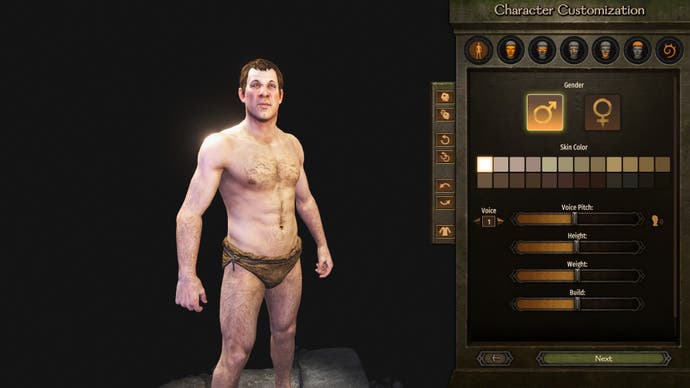
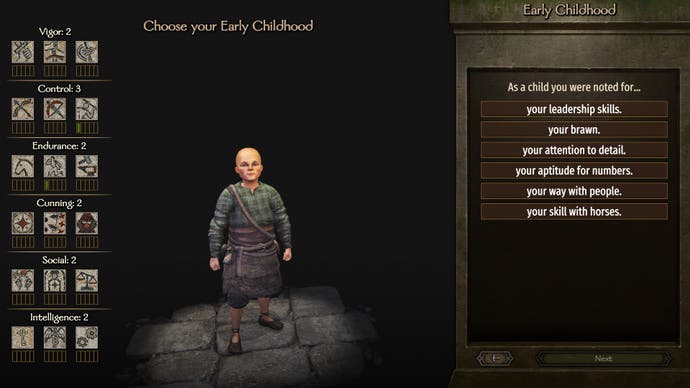
Let me backtrack a bit. Mount & Blade 2 is a mush of genres. There's the in-person commanding element to battles I mentioned above, but also the actual fighting part of battles too. This works a bit like the Chivalry games and their ilk, in that you can swipe weapons in a few different directions, and block in those directions too, trying to hit while not getting hit in return. Projectiles, you have to actually aim. And there are various skills underwriting how well you can do all of this, which improve with their use.
On top of that you have a worldmap layer where your tiny avatar rides around, going from place to place, buying and selling and recruiting, in an effort to make more money and hire better troops. And all the while, you're levelling up in whatever you're doing - swording people, shooting, scouting, trading - and understanding what life might have been like back then, at the turn of the millennium.
And it's a believable recreation. Particular effort has gone into modelling the villages and cities you see on the world map. You can go into them and explore them and talk to people there - there's dialogue. There are quests too; it feels a lot like an RPG. But it also feels like a simulation game and a strategic action game, not that any of the parts are particularly deep individually. But together, in a mush, they are an enjoyable blend all of Mount & Blade's own.
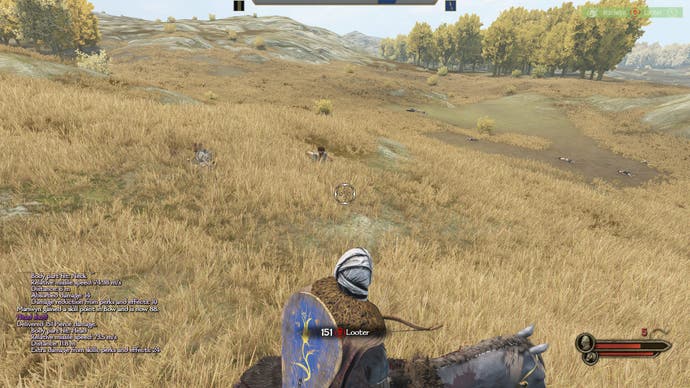
There's a lot about it that I like. I like the way that it presents you with a simulated world and more or less says, "There you go - do with it what you will." And I like the freedom to find cheesy loopholes like my archer-on-horseback, because breaking these simulations in my favour is part of the allure for me. That it's not the most believable combat simulation doesn't matter to me, nor does it matter that the characters and dialogue seem a bit thin, because they're part of a much larger whole, and there's oodles of depth in skill-tree development affecting that whole simulated world.
The problem is, sometimes it's a bit too loose, a bit too eager to let you free in that world. And all of the things I see Mount & Blade 2: Bannerlord really trying to do, particularly on the RPG front, don't really seem to amount to much. It isn't long before you'll be skipping exploring the villages and towns entirely, in favour of the landing screen where you can buy and trade and talk to characters immediately instead. And you won't care what they're saying or who they are, because the quests are forgettable and so are they. All I've done in five hours is ride from place to place doing variations of the same thing, none of it particularly that exciting.
But I can see - or I suspect - that it will be. I can see larger armies riding around the map, and larger forces and kingdoms at work, and I know that, in time, I'll be competing with them. And I've seen snippets of mounted enemies in action and it is thrilling the speed they move at. But it's the 'how to break into that?' that's is frustrating me, because the answer always seems to be: time. Time for me to observe and learn so I can bend the formula to my ends. Time to learn what to trade, who to hire, how to fight. Then, I will begin to master the simulation I'm butting up against now. The question is, do I - or you - have enough time and inclination to do it?
